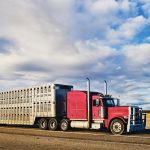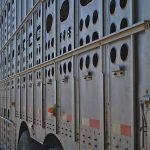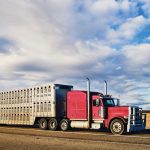
Tag Archives livestock transportation

Pig transport stress costs pork sector
Popular livestock trailer designs also increase pig stress during transport, hitting at meat quality, animal welfare and farm profit, Agriculture and Agri-Food Canada researcher says

Canadian farms at risk from animal activism
A legal expert warns that growing animal rights activism is creating complex challenges for Canadian livestock farmers

Manitoba auctions offer respite to fire-evacuated livestock
Heartland Livestock Services in Virden and Grunthal Auction Mart in Grunthal have offered farmers in fire-threatened areas a safe place to evacuate their livestock.

Emergency definition in hotseat in transport report
Emergency management and hours of service among concerns for House ag committee
New Zealand exports last livestock

Study fails to support rest stop benefits for cattle: BCRC
Preconditioning appears to be more important than rest and feed stops BCRC says

More time needed on livestock transport code
Updated rules for animal transport have been in the works since 2018, prior to changes in federal regulation

Empty roads a headache for hog producers
Truck drivers are at a premium and that’s a serious problem for the pork sector

Manitoba farm groups happy with AgriRecovery program details
New Zealand to end livestock exports by sea
The decision is due to animal welfare concerns


